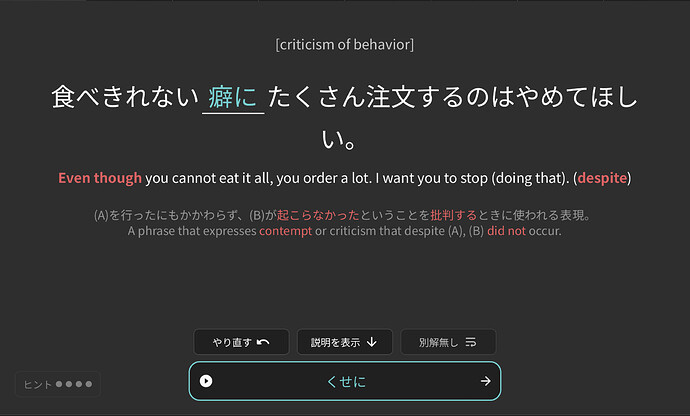OK, your explanation with the nominalization finally made it click in my head. Thank you!
For whatever reason, even though @Sidgr came up with a similar translation to yours, it was just not making sense to me (mostly because I was focusing on the 癖に/Despite part, rather than taking the whole phrase and tagging “I want you to stop [that]” to it].
The BunPro translation also highlights this, but I dismissed it due to it being arranged as two separate sentences (whereas I’m more of a literal translator). However, I can now see why they did that.
That said, sometimes I’m too literal, to a fault. Even though thinking this way has helped me understand Japanese most times, this was not one of them lol. The way I was thinking about this sentence, adding から instead of 癖に would’ve made it more clear to me. Of course they’re different grammar, I know. It’s just something that crossed my mind while I was thinking about this.
Anyway, thanks again to all who contributed! Much appreciated! 
 .
.



 .
.